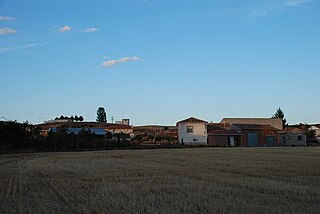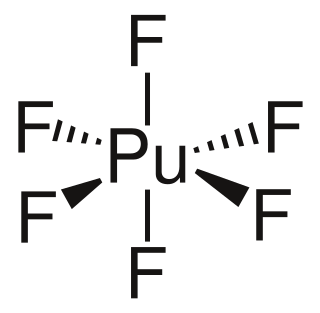
William Nunn Lipscomb Jr. was a Nobel Prize-winning American inorganic and organic chemist working in nuclear magnetic resonance, theoretical chemistry, boron chemistry, and biochemistry.

Philip Warren Anderson was an American theoretical physicist and Nobel laureate. Anderson made contributions to the theories of localization, antiferromagnetism, symmetry breaking, and high-temperature superconductivity, and to the philosophy of science through his writings on emergent phenomena. Anderson is also responsible for naming the field of physics that is now known as condensed matter physics.

The Morse potential, named after physicist Philip M. Morse, is a convenient interatomic interaction model for the potential energy of a diatomic molecule. It is a better approximation for the vibrational structure of the molecule than the quantum harmonic oscillator because it explicitly includes the effects of bond breaking, such as the existence of unbound states. It also accounts for the anharmonicity of real bonds and the non-zero transition probability for overtone and combination bands. The Morse potential can also be used to model other interactions such as the interaction between an atom and a surface. Due to its simplicity, it is not used in modern spectroscopy. However, its mathematical form inspired the MLR (Morse/Long-range) potential, which is the most popular potential energy function used for fitting spectroscopic data.
The Kano Chronicle is an Arabic-language manuscript that lists the rulers of Kano.

Alec Nigel Broers, Baron Broers is a British electrical engineer.

Yttrium oxide, also known as yttria, is Y2O3. It is an air-stable, white solid substance.
German submarine U-1063 was a Type VIIC/41 submarine of Nazi Germany's Kriegsmarine during World War II. Her keel was laid down on 17 August 1943 by Germaniawerft in Kiel. She was commissioned on 8 July 1944 with Kapitänleutnant Karl-Heinz Stephan in command.

Niobium nitride is a compound of niobium and nitrogen (nitride) with the chemical formula NbN. At low temperatures NbN becomes a superconductor, and is used in detectors for infrared light.
The helium hydride ion, hydridohelium(1+) ion, or helonium is a cation (positively charged ion) with chemical formula HeH+. It consists of a helium atom bonded to a hydrogen atom, with one electron removed. It can also be viewed as protonated helium. It is the lightest heteronuclear ion, and is believed to be the first compound formed in the Universe after the Big Bang.

Monymusk is a planned village in the Marr area of Aberdeenshire, Scotland.

Nogal de las Huertas is a municipality located in the province of Palencia, Castile and León, Spain. According to the 2004 census (INE), the municipality has a population of 62 inhabitants.

Plutonium hexafluoride is the highest fluoride of plutonium, and is of interest for laser enrichment of plutonium, in particular for the production of pure plutonium-239 from irradiated uranium. This isotope of plutonium is needed to avoid premature ignition of low-mass nuclear weapon designs by neutrons produced by spontaneous fission of plutonium-240.
The Rural Municipality of Westbourne is a former rural municipality (RM) in the Canadian province of Manitoba. It was originally incorporated as a rural municipality on December 1, 1877. It ceased on January 1, 2015 as a result of its provincially mandated amalgamation with the RM of Lakeview and the Town of Gladstone to form the Municipality of WestLake – Gladstone.

Aluminium monochloride, or chloridoaluminium is the metal halide with the formula AlCl. Aluminium monochloride as a molecule is thermodynamically stable at high temperature and low pressure only. This compound is produced as a step in the Alcan process to smelt aluminium from an aluminium-rich alloy. When the alloy is placed in a reactor that is heated to 1,300 °C and mixed with aluminium trichloride, a gas of aluminium monochloride is produced.
Europium barium titanate is a chemical compound composed of barium, europium, titanium, and oxygen. It is magnetic and ferroelectric at 1.5 K.

The Morse/Long-range potential (MLR potential) is an interatomic interaction model for the potential energy of a diatomic molecule. Due to the simplicity of the regular Morse potential (it only has three adjustable parameters), it is very limited in its applicability in modern spectroscopy. The MLR potential is a modern version of the Morse potential which has the correct theoretical long-range form of the potential naturally built into it. It has been an important tool for spectroscopists to represent experimental data, verify measurements, and make predictions. It is useful for its extrapolation capability when data for certain regions of the potential are missing, its ability to predict energies with accuracy often better than the most sophisticated ab initio techniques, and its ability to determine precise empirical values for physical parameters such as the dissociation energy, equilibrium bond length, and long-range constants. Cases of particular note include:
- the c-state of dilithium (Li2): where the MLR potential was successfully able to bridge a gap of more than 5000 cm−1 in experimental data. Two years later it was found that the MLR potential was able to successfully predict the energies in the middle of this gap, correctly within about 1 cm−1. The accuracy of these predictions was much better than the most sophisticated ab initio techniques at the time.
- the A-state of Li2: where Le Roy et al. constructed an MLR potential which determined the C3 value for atomic lithium to a higher-precision than any previously measured atomic oscillator strength, by an order of magnitude. This lithium oscillator strength is related to the radiative lifetime of atomic lithium and is used as a benchmark for atomic clocks and measurements of fundamental constants.
- the a-state of KLi: where the MLR was used to build an analytic global potential successfully despite there only being a small amount of levels observed near the top of the potential.

The American Crystallographic Association, Inc. (ACA) is a non-profit, scientific organization for scientists who study the structure of matter via crystallographic methodologies. Since its founding in 1949 it has amassed over 2000 members worldwide.
The Sheriff of Banff was historically the office responsible for enforcing law and order and bringing criminals to justice in Banff, Scotland.

Ogilvie Island is a patch of mud in San Francisco Bay. It is within the limits of the city of San Jose, in Santa Clara County, California, and named for county planner Arthur Ogilvie. Its coordinates are 37°27′55″N122°00′37″W, and the United States Geological Survey gave its elevation as 0 ft (0 m) in 2012. It appears on a 2012 USGS map of the area.
Michael Riordan is an American physicist, science historian and author.
This page is based on this
Wikipedia article Text is available under the
CC BY-SA 4.0 license; additional terms may apply.
Images, videos and audio are available under their respective licenses.











